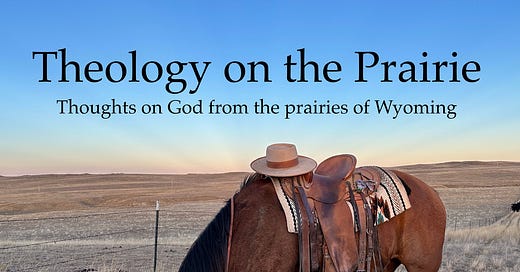Jephthah was chosen by the Israelite people to serve as their judge and lead them in war against the Ammonites, despite being the son of a foreign woman and an outcast.
Judges 11:30-32, 11:34-36 (ESV)
30 And Jephthah made a vow to the LORD and said, “If you will give the Ammonites into my hand, 31 then whatever comes out from the doors of my house to meet me when I return in peace from the Ammonites shall be the LORD’s, and I will offer it up for a burnt offering.” 32 So Jephthah crossed over to the Ammonites to fight against them, and the LORD gave them into his hand.
34 Then Jephthah came to his home at Mizpah. And behold, his daughter came out to meet him with tambourines and with dances. She was his only child; besides her he had neither son nor daughter. 35 And as soon as he saw her, he tore his clothes and said, “Alas, my daughter! You have brought me very low, and you have become the cause of great trouble to me. For I have opened my mouth to the Lord, and I cannot take back my vow.” 36 And she said to him, “My father, you have opened your mouth to the Lord; do to me according to what has gone out of your mouth, now that the Lord has avenged you on your enemies, on the Ammonites.”
Hannah was one of two wives to a man named Elkanah. Elkanah’s other wife, Peninnah, had provided him with children, but Hannah had none because “the LORD had closed her womb.” The whole family would travel annually to Shiloh to offer sacrifices to God. Peninnah would mock and provoke Hannah because she had no children to offer sacrifices for.
1 Samuel 1:9-11, 1:19-20 (ESV)
9 After they had eaten and drunk in Shiloh, Hannah rose. Now Eli the priest was sitting on the seat beside the doorpost of the temple of the LORD. 10 She was deeply distressed and prayed to the LORD and wept bitterly. 11 And she vowed a vow and said, “O LORD of hosts, if you will indeed look on the affliction of your servant and remember me and not forget your servant, but will give to your servant a son, then I will give him to the LORD all the days of his life, and no razor shall touch his head.”
19 They rose early in the morning and worshiped before the LORD; then they went back to their house at Ramah. And Elkanah knew Hannah his wife, and the LORD remembered her. 20 And in due time Hannah conceived and bore a son, and she called his name Samuel, for she said, “I have asked for him from the LORD.”
Hannah kept her promise to God, and when Samuel was weaned she brought him back to Shiloh and gave him to Eli the high priest to serve in the temple. She brought along a sacrifice 3x the amount of what was required and a joyous prayer to God. The Lord blessed her with three more sons and two daughters.
Both Jephthah and Hannah made a vow to God, but the outcomes of the vows were strikingly different.
Thinking Ahead
Unlike the barren Sarah and Rachel that came before her, Hannah did not try scheming her way into a child, but went to the Lord first. She put care, thought, and reverence into her promise to God. Hannah’s promise was carefully thought out and fell within the Mosaic Law.
Jephthah’s vow to God was rash and not thought out. He casually promised that he would sacrifice whatever came out of his house when he arrived home.
Mosaic Law
Hannah promised to dedicate her son to the service of God in the form of a Nazarite vow. A Nazarite vow was an optional part of God’s Law for His people. It was voluntary and could be given up, with a sacrifice offered at its conclusion.
Jephthah, being an outcast and half Canaanite, probably did not know God’s Law very well. If he did, he would have known that human sacrifices were prohibited, and instead of offering his daughter would have redeemed his vow by an offering of silver in her place.
The Aftermath
Hannah’s response to giving up her son was offering sacrifices and joyous, worshipful prayer to God. She was able to visit her son, Samuel, each year during their pilgrimage to Shiloh. Samuel grew in “stature and in favor with the LORD and also with man.” Hannah went on to be blessed with more children, even though she had only asked God for one.
Jephthah’s response to his promised sacrifice was sorrow and mourning. Scholars debate whether Jephthah’s daughter was killed as an offering or was dedicated as a “perpetual virgin” (never being allowed to marry and carry on Jephthah’s lineage). Whichever is the case, his vow did not help him in the long term. Jephthah’s poor leadership resulted in a civil war and the deaths of 42,000 people. His reign as judge over Israel lasted only six years, compared to the 20 and 40 years of other judges.



